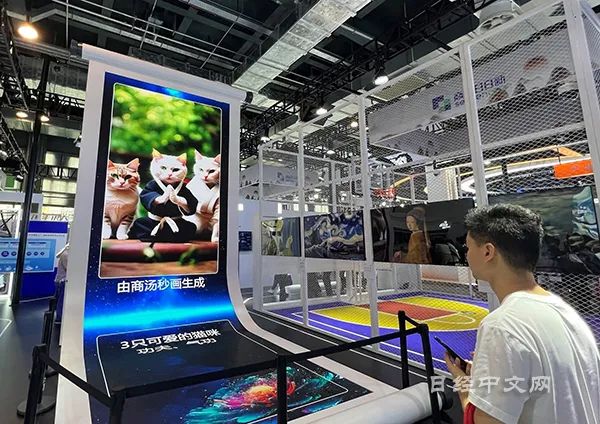China's Generative AI Boom Creates Talent Shortage of 4 Million
-

Top talents in their 30s with experience in large-scale language models at major tech firms and holding master's or doctoral degrees have become prime recruitment targets, commanding annual salaries of around 1 million yuan. By 2030, China's AI talent demand is projected to expand to 6 million, six times the 2022 level, while supply is estimated at only 2 million...
In China, the talent shortage in the artificial intelligence (AI) field has begun to emerge. The reason is that many companies are vigorously developing generative AI capable of automatically writing articles and more, leading to demand outpacing supply. The U.S.-China tensions have reduced talent exchanges between the two countries, and against this backdrop, China's talent gap is expected to reach 4 million by 2030. Huawei is actively recruiting young researchers with high salaries, and companies are stepping up efforts to cultivate talent.
Chen Xiaobin, AI Director at Shanghai-based talent agency MGA (Mango Assocights), pointed out that not only major internet companies but also startups and financial firms are hiring top AI talent.
The battle for talent among companies is becoming increasingly fierce. Chen Xiaobin said that many candidates receive offers from multiple companies, and some who have been courted for months ultimately choose another employer.
Top talents in their 30s with experience in large-scale language models at major tech firms and holding master's or doctoral degrees have become prime recruitment targets.
These top-tier professionals reportedly command annual salaries of 1 million yuan, with Chen Xiaobin's projects having seen offers exceeding 3 million yuan.
The background stems from the generative AI boom. Since spring 2023, numerous Chinese companies, particularly large internet firms, have announced generative AI development initiatives. The Chinese government also began issuing service operation licenses under generative AI regulations effective August 15.
On August 31, Baidu launched its self-developed generative AI "ERNIE Bot" to the public, reportedly answering 33.42 million queries within the first 24 hours. Image recognition company SenseTime also debuted its generative AI "SenseChat" the same day.
Data from recruitment platform Liepin shows AIGC (AI-generated content) field job postings for roles like algorithm engineers grew 2.3 times year-over-year in H1 2023. These positions offer average annual salaries exceeding 400,000 yuan, significantly higher than the approximately 220,000 yuan in new energy vehicle sectors.
The talent shortage appears persistent. McKinsey's May 2023 report predicts China will face a 4 million AI talent gap by 2030.
The demand for AI talent in China has expanded to 6 million people, six times that of 2022, while the supply remains only 2 million. McKinsey states: "With declining birth rates and fewer university students, it will become increasingly difficult to secure AI talent."
US-China political tensions have also cast a shadow over China's strategy to acquire AI talent. In October 2022, the US announced a ban on exporting cutting-edge AI technology to China. In early August 2023, it further announced restrictions on investments in advanced fields like AI. The Chinese government has also emphasized national security, strictly limiting the use of US generative AI tools like ChatGPT.
In June, Microsoft stated it was considering relocating some of its AI researchers in China to Canada, aiming to prevent domestic talent competition in China.
A 2021 AI-related report published by Tsinghua University's AI Institute and others showed that the US has 1,244 top AI researchers, accounting for over 60% of the global total. China ranks second with 196, but there remains a significant gap with the US.
Many Chinese AI researchers originally studied and worked in the US, acquiring advanced skills before returning to China. However, exchanges between Chinese and US researchers are decreasing, making it potentially more difficult for China to utilize US technology in the future.
Companies with a sense of urgency are focusing on talent cultivation. Baidu collaborates with universities across China to support AI-related research. In January 2023, Baidu's CTO Wang Haifeng told Chinese media that through various collaborations, they have trained over 3 million AI professionals.
Huawei has launched its "Genius Youth" recruitment program targeting top young researchers in fields like AI, offering annual salaries of up to approximately 2 million yuan, and has already attracted hundreds of talents.
Tencent Holdings has also introduced basic AI and programming courses for teenagers on social media platforms.
Despite these efforts, the industry continues to face a talent shortage. It's becoming increasingly difficult to recruit top researchers from countries like the US. If the cultivation of a broad talent pool fails to keep up with demand, there's a persistent risk of hindering future development.
China has consistently prioritized AI as a key industry for development, gradually narrowing the gap with the US in leading AI research. Talent development remains a crucial factor in the strategic competition for "AI dominance" between China and the US.
